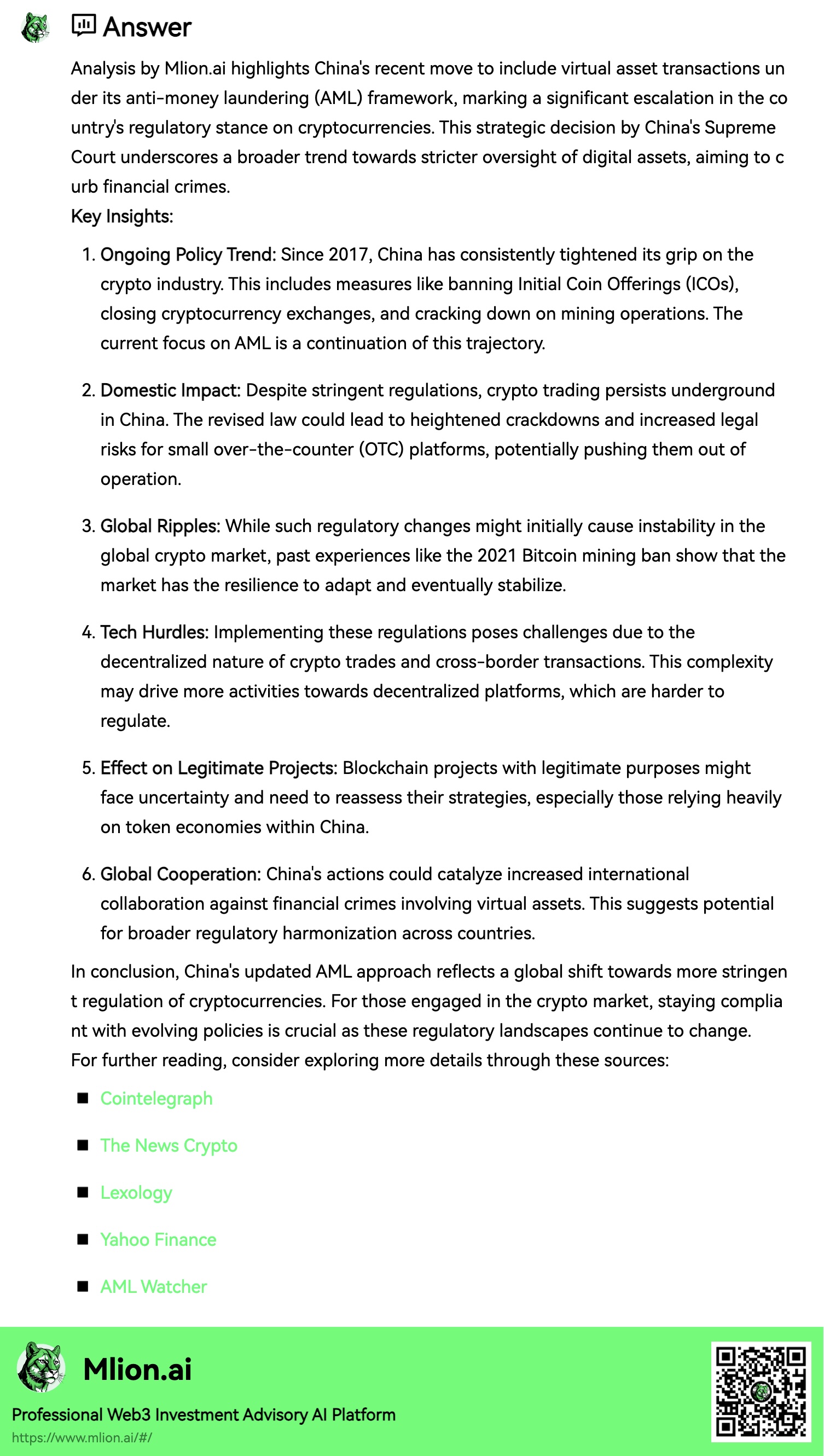According to Mlion.ai, China's Supreme Court now considers virtual asset transactions, like those with cryptocurrencies, as potential money laundering activities. This marks a major tightening in China's anti-money laundering stance to curb financial crimes and reflects changes in the Anti-Money Laundering Law. Here are the key takeaways:
-
Ongoing Policy Trend: China's been clamping down on crypto since 2017. From banning ICOs and closing exchanges to mining crackdowns, this move is part of a larger regulatory trajectory.
-
Domestic Impact: Despite bans, crypto trading continues in China, albeit underground. This law could intensify crackdowns and raise legal risks, possibly shutting down small over-the-counter (OTC) platforms.
-
Global Ripples: Initially, the global crypto market might feel some tremors. Yet, as history shows, like the 2021 Bitcoin mining ban, the market tends to adapt and stabilize over time.
-
Tech Hurdles: Enforcing these regulations won’t be easy. Decentralized trades and cross-border dealings are notoriously hard to track, which might drive activity to decentralized platforms.
-
Effect on Legitimate Projects: Legal blockchain ventures might face uncertainty. Those relying on token economies may need to rethink strategies within China.
-
Global Cooperation: This could lead to more cross-border teamwork against financial crimes. Watch for international regulatory action on virtual assets.
In sum, China’s cautious approach mirrors a global trend towards tighter crypto oversight. If you're navigating the crypto seas, stay compliant and be ready for policy shifts.
For more insights, visit mlion.ai.
Remember, this info isn’t investment advice—investing remains risky, so tread carefully! Follow me for daily market updates!





评论 (0)